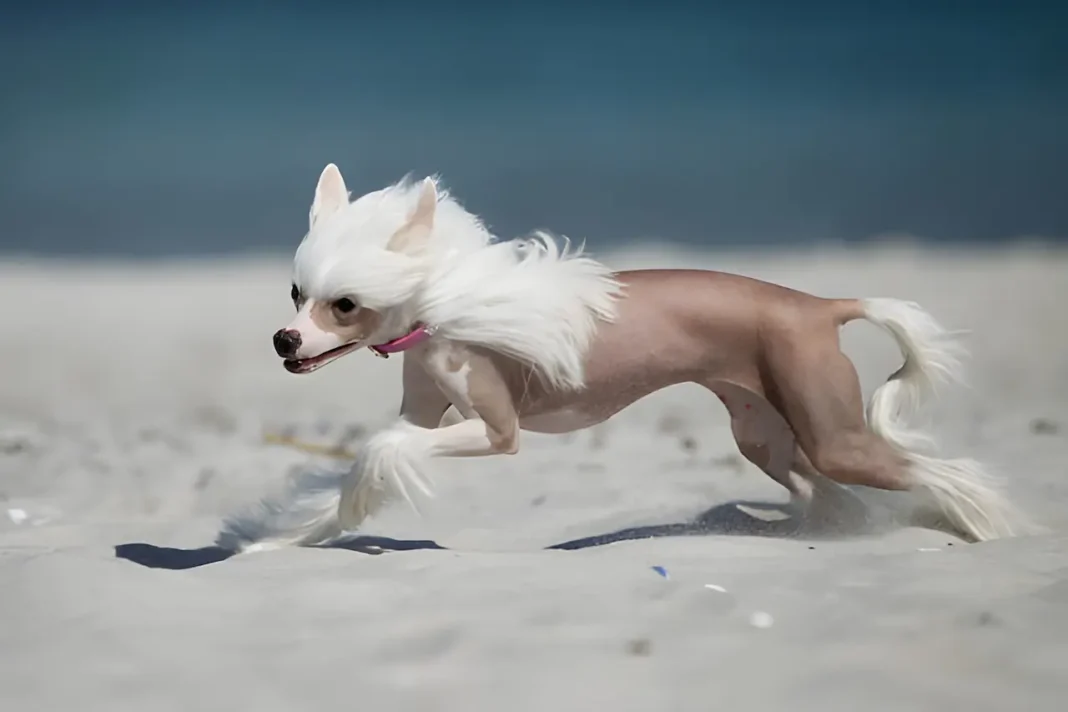Discover the best dog breeds that thrive in hot weather and warm climates. This comprehensive veterinary guide covers heat-tolerant dogs, tropical climate breeds, and expert care tips for keeping your canine companion safe in high temperatures.
Finding the Perfect Hot Weather Dog Breed for Your Climate
Choosing the right dog breed for hot weather is one of the most important decisions prospective pet owners in warm climates can make. While some dog breeds for cold weather like Siberian Huskies and Alaskan Malamutes thrive in snow, others need protective clothing just to walk around the block in cool temperatures.
If you live in a hot climate—whether it’s Florida, Texas, California, Arizona, or other warm regions—adopting a heat-tolerant dog breed isn’t just about convenience; it’s essential for your pet’s health and wellbeing. This becomes especially critical for active families seeking an adventure companion for running, hiking, beach activities, or outdoor sports in warm weather.
Understanding Heat Tolerance in Dogs: The Science Behind Hot Weather Breeds
Modern veterinary research has identified specific characteristics that enable certain dog breeds to regulate body temperature effectively in hot weather conditions. Understanding these traits is essential for selecting the best dogs for warm climates.
What Makes Dogs Good for Hot Weather?
Coat Type and Color Matter
The best dog breeds for hot weather typically have short, single-layer coats that allow heat to dissipate efficiently. Dogs with thick double coats trap heat close to the body, making them unsuitable for warm climates. Light-colored coats (white, tan, cream, fawn) reflect sunlight, while darker coats absorb heat. This is why many heat-tolerant dog breeds have lighter coat colors naturally.
Body Structure and Build
Dogs that do well in hot weather often have:
- Lean, athletic builds with lower body fat
- Long legs providing greater surface area for heat dissipation
- Slender frames that don’t trap excess heat
- Large, erect ears that function as natural radiators
Muzzle Length and Breathing Efficiency
Long-nosed dogs can cool inhaled air more effectively through their nasal passages before it reaches the lungs. This makes them superior at thermoregulation compared to brachycephalic (flat-faced) breeds, which struggle with efficient panting in hot weather.
Geographic Origins
Dog breeds developed in hot climates—Africa, Mexico, Mediterranean regions, Middle East, and tropical areas—possess genetic adaptations for heat tolerance that have been preserved through generations of selective breeding.
Critical Heat Safety Warning for All Dog Owners
Important: Even the most heat-tolerant dog breeds can suffer from heat stroke in extreme conditions. Veterinary professionals emphasize that all dogs require:
- Constant access to fresh, cool water
- Adequate shade and preferably air-conditioned indoor spaces
- Exercise limited to cool morning or evening hours
- Never leave dogs in hot cars—even for “just a minute”
- Special sun protection for hairless breeds using vet-approved dog sunscreen
- Monitoring for heat stroke signs: excessive panting, drooling, lethargy, collapse
15 Best Dog Breeds for Hot Weather
Rhodesian Ridgeback – The African Lion Hunter
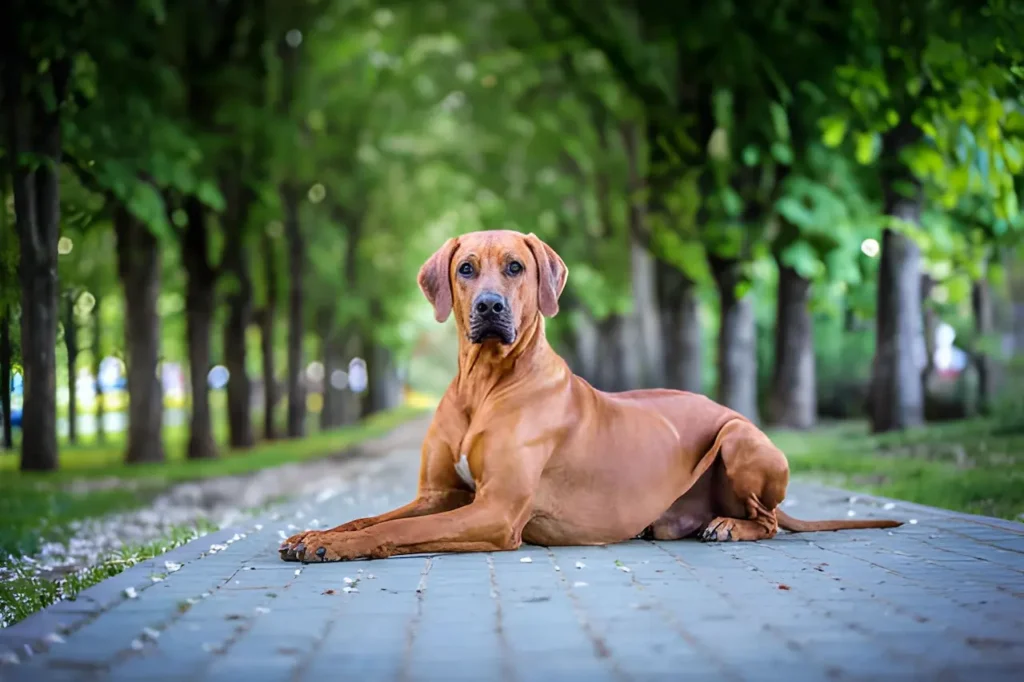
Breed Overview
The Rhodesian Ridgeback stands as one of the best dog breeds for hot weather, developed in southern Africa specifically to hunt lions and large game in extreme heat. Named for the distinctive ridge of reversed-growth hair along their spine, these muscular, athletic dogs possess exceptional heat tolerance. Their short, sleek coat and powerful build enabled them to pursue prey across the scorching savanna while maintaining stamina.
Modern Rhodesian Ridgebacks retain these thermoregulatory advantages. Owners consistently report that these dogs actively seek warmth—basking in direct sunlight, positioning themselves near heat sources, or burrowing under blankets. This heat-seeking behavior reflects their evolutionary adaptation to hot climates, making them ideal companions for warm regions.
Best For: Active families in hot climates, experienced dog owners, those with large yards
Exercise Needs: High – requires daily vigorous exercise
Grooming: Low maintenance – weekly brushing
Basenji – The Barkless Dog from Africa
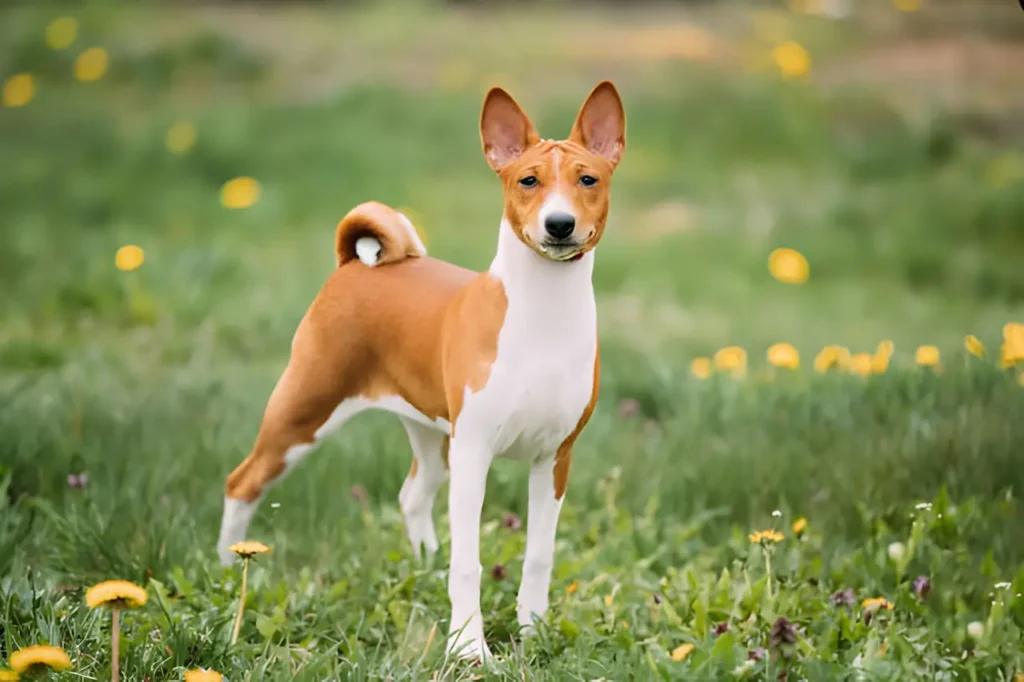
Breed Overview
The Basenji, often called the “barkless dog” due to its unique yodel-like vocalizations, originates from equatorial Central Africa, making it one of the most heat-adapted small dog breeds for hot weather. Their homeland’s consistently high temperatures and humidity have shaped remarkable heat tolerance capabilities.
These compact hounds possess short, fine coats that facilitate maximum heat dissipation. Their large, erect ears function as natural radiators, allowing excess heat to escape efficiently. The breed’s lean, athletic build and cat-like grooming behaviors further enhance their ability to stay cool. Basenjis are highly intelligent but independent, requiring experienced ownership and consistent positive reinforcement training methods.
Best For: Experienced dog owners, active individuals, those seeking a unique breed
Exercise Needs: Moderate to high – daily exercise required
Grooming: Very low – minimal shedding, self-grooming like cats
Training Challenge: High – intelligent but stubborn
Dalmatian – The Iconic Spotted Coach Dog
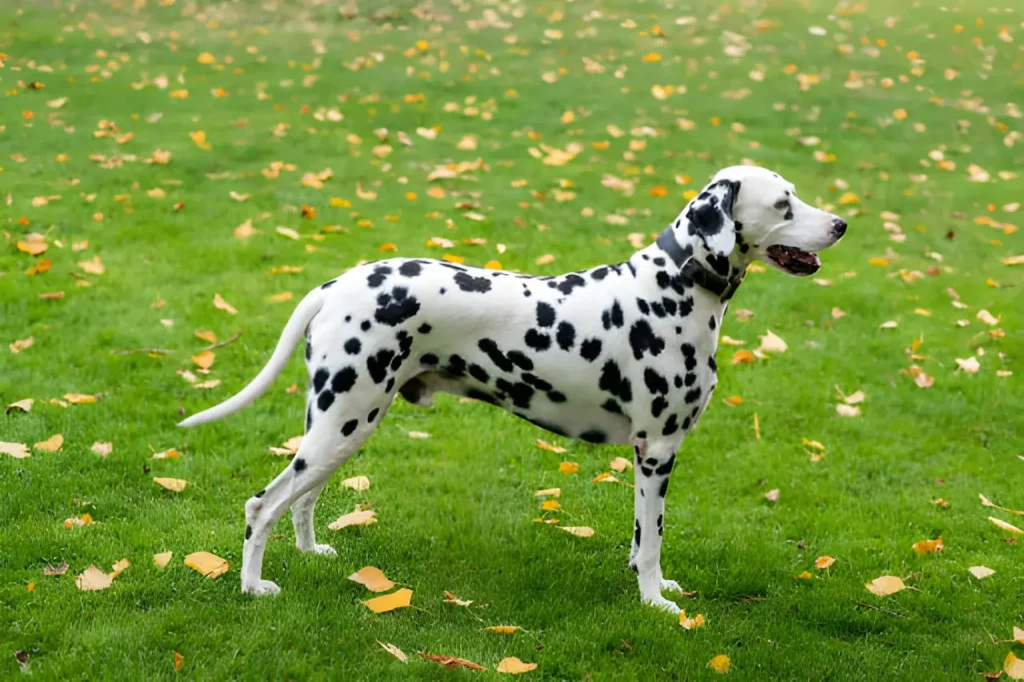
Breed Overview
Dalmatians rank among the most recognizable dog breeds that do well in hot weather, thanks to their distinctive spotted coats and historical role as carriage dogs. These athletic dogs accompanied horse-drawn vehicles across diverse terrain and climate conditions, requiring exceptional stamina and weather adaptability.
Their short, white coat with black or liver spots provides natural solar reflection, significantly reducing heat absorption. The breed’s lean, muscular build and high energy level make them perfect companions for active families in warm climates. However, their exercise requirements demand careful management during peak heat—Dalmatians need vigorous daily activity but should exercise during cooler morning or evening hours to prevent overexertion in hot weather.
Best For: Active families, runners, those with large yards
Exercise Needs: Very High – requires extensive daily exercise
Grooming: Moderate – sheds year-round despite short coat
Special Note: Prone to deafness – hearing testing recommended
Dachshund – The Tenacious Badger Hunter
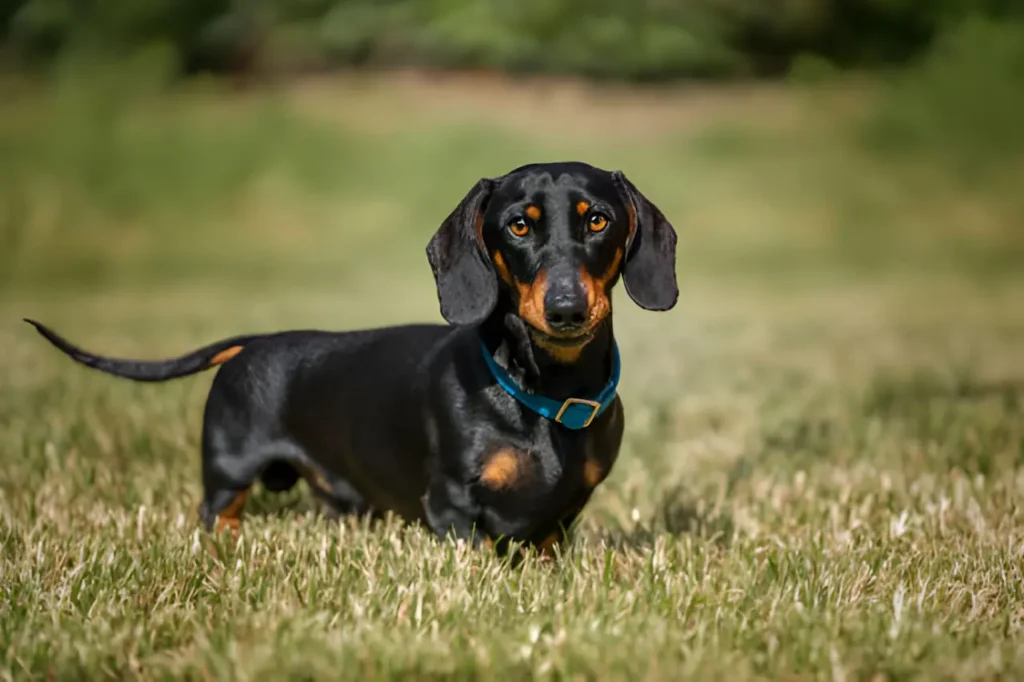
Breed Overview
Dachshunds, particularly the smooth-coated variety, demonstrate surprising adaptability to hot weather despite their compact stature. These determined hunters were originally bred to pursue badgers into underground burrows, requiring courage and tenacity that modern Dachshunds retain.
The smooth-coated Dachshund excels as a small dog breed for hot weather due to minimal coat insulation. These spirited dogs often seek comfortable, warm resting spots, making them content in heated environments. Their energetic disposition can lead to overexertion, however, necessitating owner vigilance during elevated temperatures. Supervision ensures these fearless dogs don’t exceed their thermoregulatory capacity during play in hot weather.
Best For: Apartment dwellers, families, those wanting a small companion
Exercise Needs: Moderate – daily walks and play
Grooming: Low (smooth), Moderate (long/wire-haired)
Health Note: Prone to back problems – avoid jumping from heights
Greyhound – The Ancient Racing Sighthound
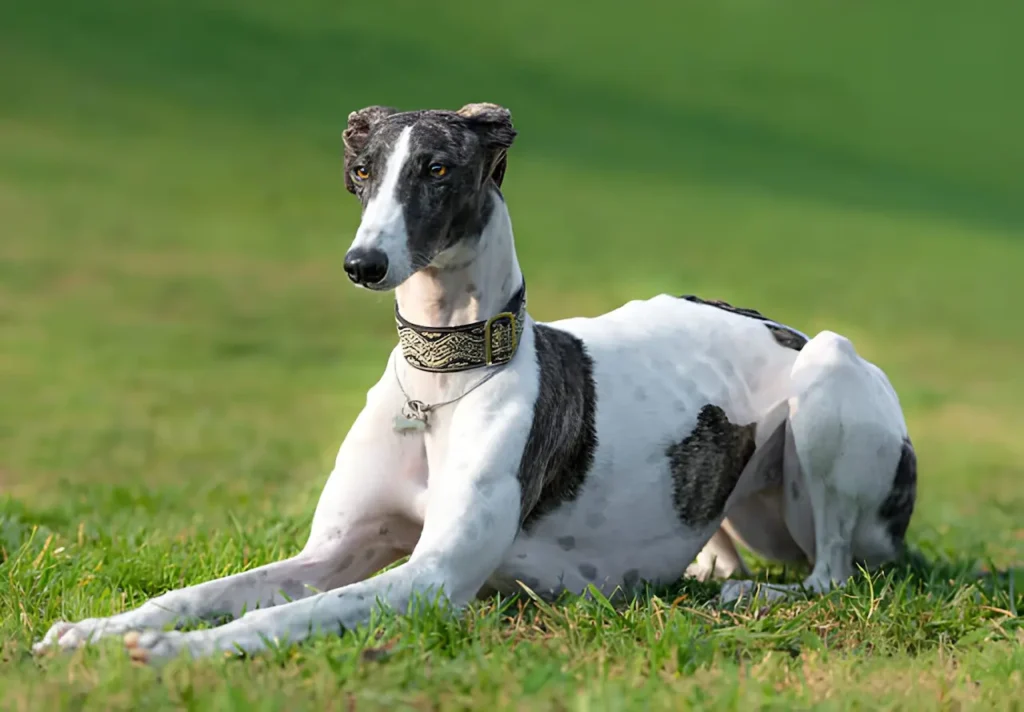
Breed Overview
Greyhounds represent a fascinating temperature paradox—their lean bodies, elongated limbs, and minimal body fat render them extremely cold-sensitive, yet these same characteristics make them excellent dogs for hot weather climates. Their short, fine coat offers minimal insulation, while their large lung capacity and efficient cardiovascular system support effective heat dissipation.
After experiencing discomfort during cool seasons, Greyhounds typically embrace warmer months enthusiastically, often observed sunbathing extensively. Despite their reputation as racing dogs, they’re surprisingly low-energy indoors, earning the nickname “40 mph couch potatoes.” Their gentle temperament and moderate exercise requirements make them suitable for warm-climate households seeking a larger, calm companion.
Best For: Quiet homes, those wanting low-energy large dogs, retirees
Exercise Needs: Moderate – short bursts of running, long walks
Grooming: Very Low – minimal shedding and grooming
Adoption Note: Many retired racing Greyhounds available for adoption
German Shorthaired Pointer – The Versatile Sporting Dog
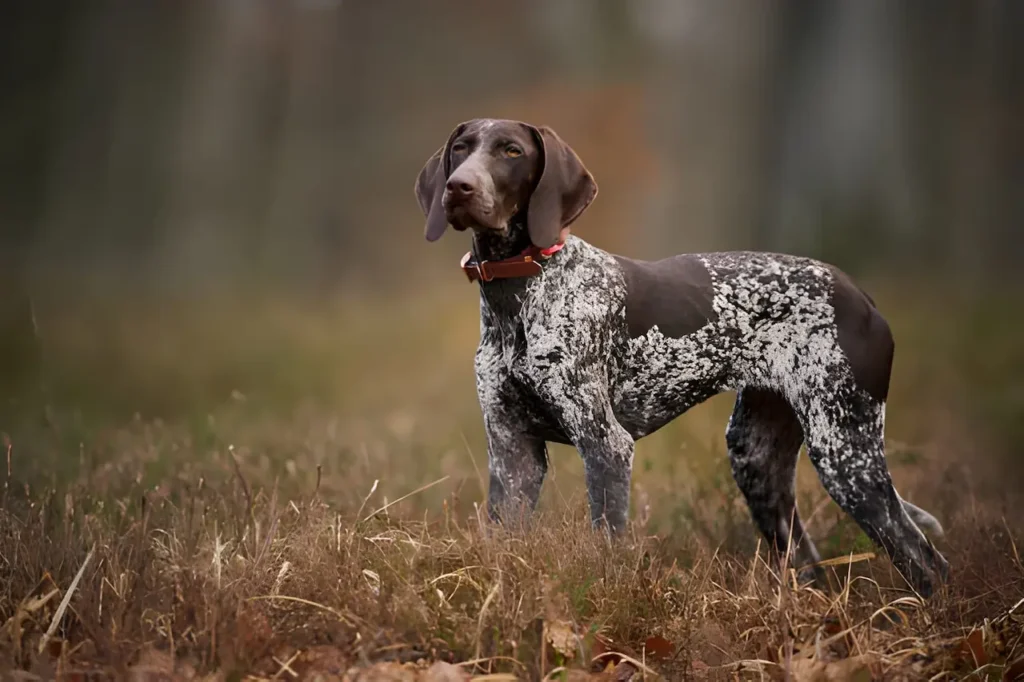
Breed Overview
German Shorthaired Pointers (GSPs) exemplify versatile sporting dog breeds that thrive in hot weather. Their short, dense coat and athletic build support vigorous activity in elevated temperatures. These intelligent hunting dogs possess a natural affinity for water, making swimming an excellent cooling mechanism during warm weather exercise.
However, their intense drive and boundless enthusiasm can lead to dangerous overexertion in hot climates. GSPs often resist stopping when engaged in stimulating activities, potentially pushing themselves beyond safe limits. Owners must implement mandatory rest intervals and provide water access during outdoor activities in warm weather. Their high energy and intelligence require experienced handling and extensive daily exercise.
Best For: Very active families, hunters, those with outdoor lifestyles
Exercise Needs: Very High – requires 1-2 hours daily vigorous exercise
Grooming: Low – weekly brushing sufficient
Training: Highly trainable but needs consistent training from puppyhood
